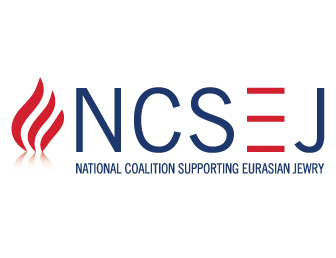Featured Galleries CLICK HERE to View the Video Presentation of the Opening of the "Holodomor Through the Eyes of Ukrainian Artists" Exhibition in Wash, D.C. Nov-Dec 2021
 USUBC COLLECTION OF OVER 160 UKRAINE HISTORIC NEWS PHOTOGRAPHS 1918-1997
USUBC COLLECTION OF OVER 160 UKRAINE HISTORIC NEWS PHOTOGRAPHS 1918-1997
 "HOLODOMOR 1932-33: THROUGH THE EYES OF UKRAINIAN ARTISTS" - COLLECTION OF POSTERS AND PAINTINGS
"HOLODOMOR 1932-33: THROUGH THE EYES OF UKRAINIAN ARTISTS" - COLLECTION OF POSTERS AND PAINTINGS
 USUBC COLLECTION OF HISTORIC PHOTOGRAPHS ABOUT LIFE AND CAREER OF IGOR SIKORSKY PHOTOGRAPHS - INVENTOR OF THE HELICOPTER
USUBC COLLECTION OF HISTORIC PHOTOGRAPHS ABOUT LIFE AND CAREER OF IGOR SIKORSKY PHOTOGRAPHS - INVENTOR OF THE HELICOPTER
 Ten USUBC Historic Full Page Ads in the Kyiv Post
Ten USUBC Historic Full Page Ads in the Kyiv Post

NCSEJ Weekly News Update

National Coalition Supporting Eurasian Jewry
Wash D.C., Fri, Feb 27, 2015
FROM:Stephen M. Greenberg, Chairman;
Alexander Smukler, NCSEJ President;
Mark B. Levin, NCSEJ ExecutiveDirector
Dear Friend,
Fewer instances of fighting between pro-Russian rebels and government forceswere reported this week, boosting hopes that the new ceasefire might hold.Yesterday, Ukraine's government began a pullout of heavy artillery from thefront line. Rebels also said they have been withdrawing tanks and otherequipment under the provisions of the truce agreement. Nevertheless, the newceasefire is shaky at best, and it is unclear whether it will last.
The gas dispute between Russia and Ukraine has flared up again. Russiathreatened to cut off energy supplies to Ukraine, if Ukraine fails to prepayfor gas deliveries. Russia and Ukraine's energy ministers are scheduled to holdnegotiations on Monday.
In the meantime, Ukraine's currency plunged even farther this week. Ukraine'seconomic crisis is worsening, and a recently announced tranche of IMF fundinghas not yet been disbursed.
This week, NCSEJ and B'nai B'rith International co-hosted a meeting withForeign Minister Linas Linkevicius of Lithuania. We had a productive discussionon a range of topics, including the Ukraine crisis, property restitution, and arecent neo-Nazi march in Kaunas.
For those planning to attend AIPAC's annual Policy Conference, I will bespeaking on Sunday, on the panel discussing Russia's paradoxical approach tothe Middle East.
I would like to highlight a RFE/RL article in this week's update, analyzingMoldova's new and fragile government, the tensions between pro-Russian andpro-Western influences, and the implications of the outcome of Moldova'sdomestic situation for the region.

























